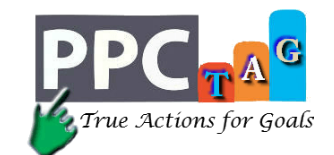Optimizing a Google Ads account for a personal injury lawyer requires a strategic approach to maximize the effectiveness of your campaigns. Here are some tips to help you optimize your Google Ads account for a personal injury lawyer:
- Define Your Goals: Clearly identify your advertising goals, such as increasing leads, phone calls, or website conversions. This will guide your optimization efforts and help you measure success.
- Target Relevant Keywords: Conduct thorough keyword research to identify relevant keywords that potential clients might use when searching for personal injury lawyers. Include keywords related to specific types of personal injury cases, such as car accidents, medical malpractice, or slip and fall incidents.
- Use Ad Extensions: Take advantage of ad extensions to provide additional information and increase the visibility of your ads. Consider using call extensions to encourage phone calls, location extensions to show your business address, and sitelink extensions to direct users to specific pages on your website.
- Create Compelling Ad Copy: Write compelling ad copy that clearly communicates the value you offer to potential clients. Highlight your expertise, success rates, free consultations, or any unique selling propositions that set you apart from competitors.
- Implement Negative Keywords: Regularly review your search term reports to identify irrelevant or non-converting search queries. Add these as negative keywords to prevent your ads from appearing for irrelevant searches and improve the overall performance of your campaigns.
- Geo-targeting: If your personal injury practice operates in specific geographic locations, utilize geo-targeting to focus your ads on relevant areas. This ensures that your ads are shown to people who are more likely to become clients.
- Landing Page Optimization: Direct users to dedicated landing pages that are specifically designed for personal injury cases. Optimize these pages to provide relevant and useful information, include clear calls-to-action, and make it easy for users to contact you or request a consultation.
- Monitor and Analyze Performance: Regularly review your campaign performance, including click-through rates (CTRs), conversion rates, cost-per-conversion, and return on investment (ROI). Use this data to make data-driven decisions and adjust your campaigns accordingly.
- A/B Testing: Experiment with different ad variations, headlines, calls-to-action, and landing page layouts to identify what works best for your target audience. A/B testing can help you optimize your campaigns over time by continually improving your ad performance.
- Conversion Tracking: Implement conversion tracking on your website to measure and attribute the actions that users take after clicking on your ads. This will provide valuable insights into the effectiveness of your campaigns and help you optimize your bidding strategies and keyword targeting.
Remember, optimizing Google Ads campaigns is an ongoing process. Continuously monitor and fine-tune your campaigns based on performance data to achieve the best possible results for your personal injury law practice.
